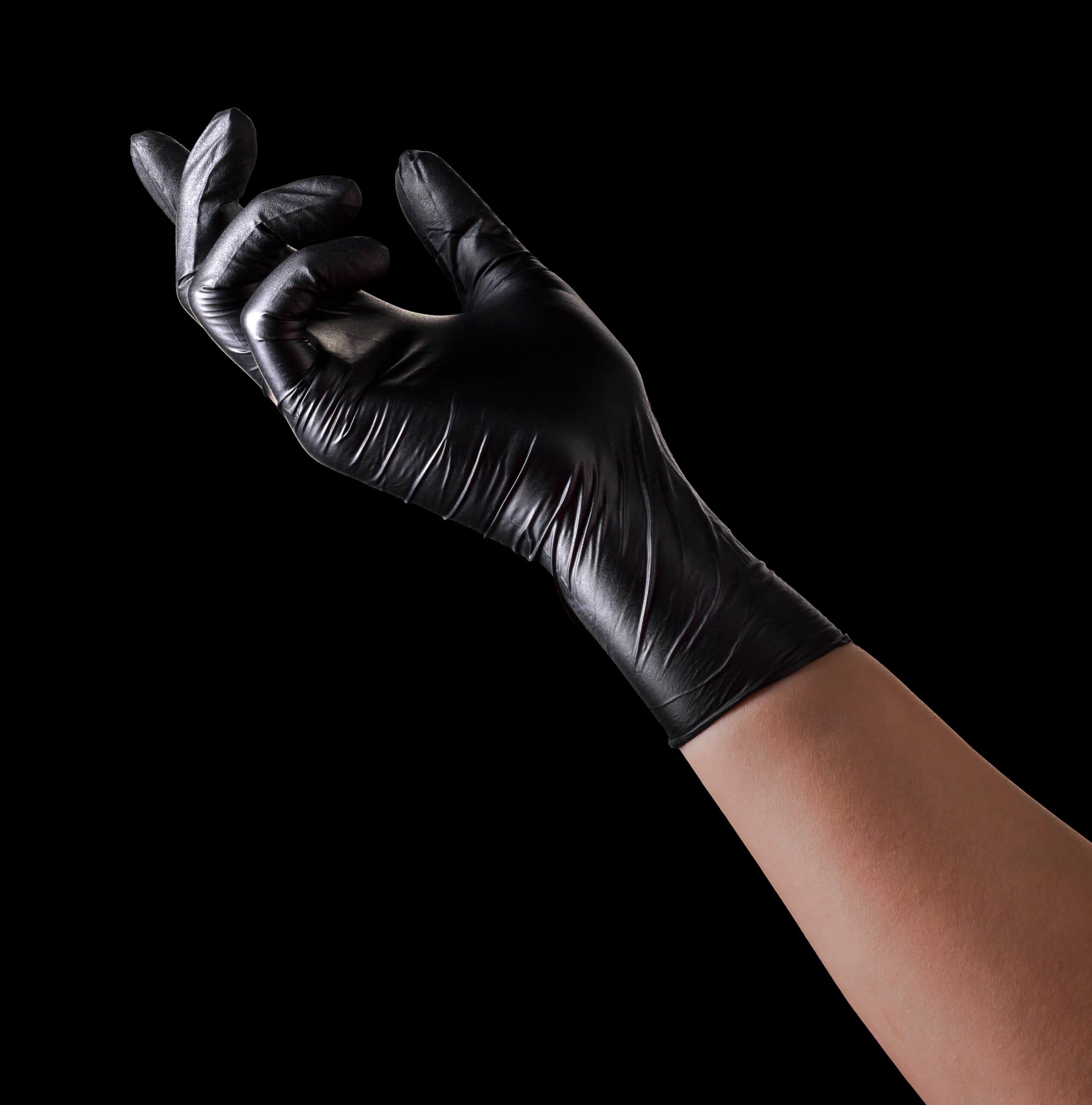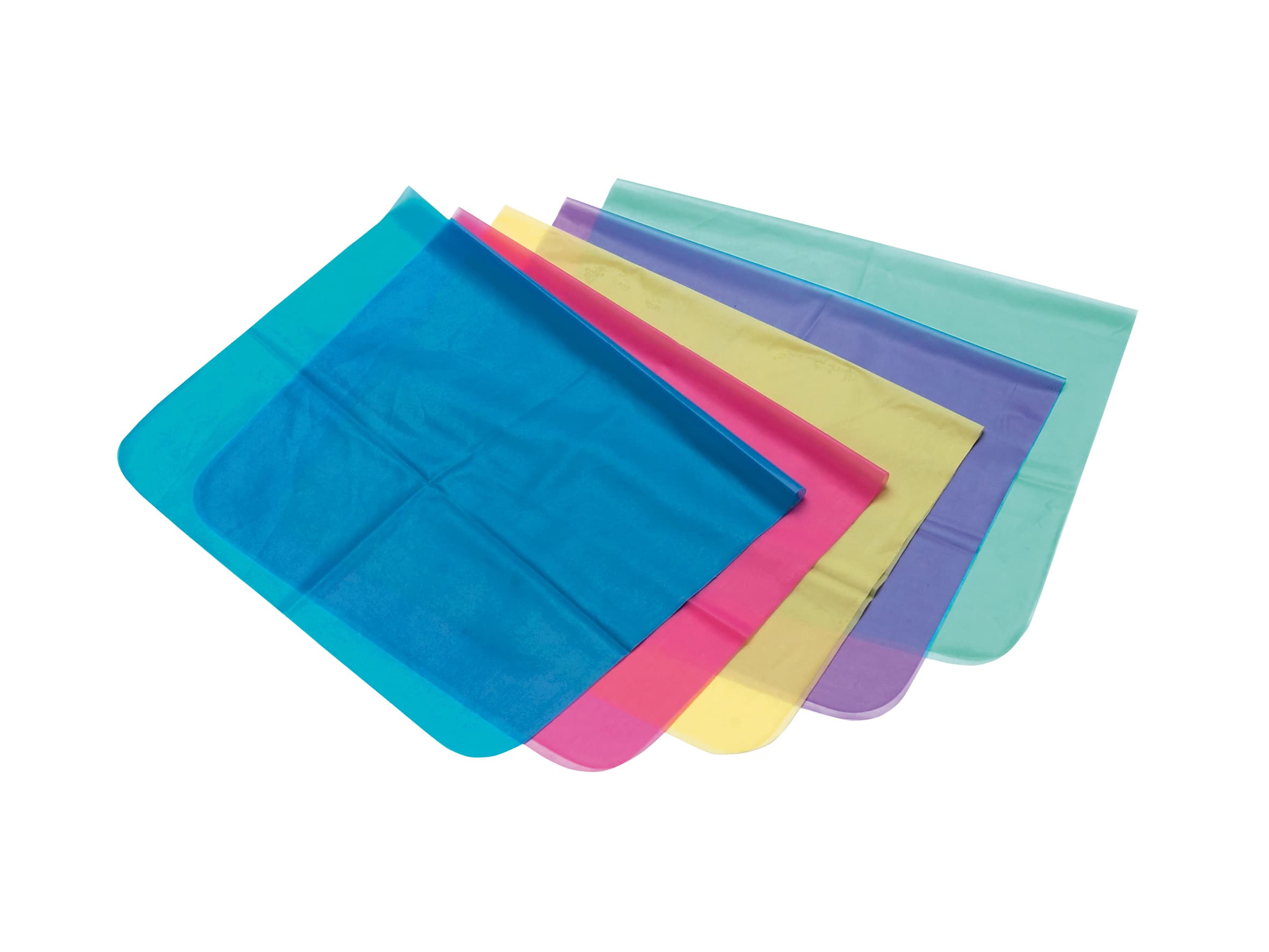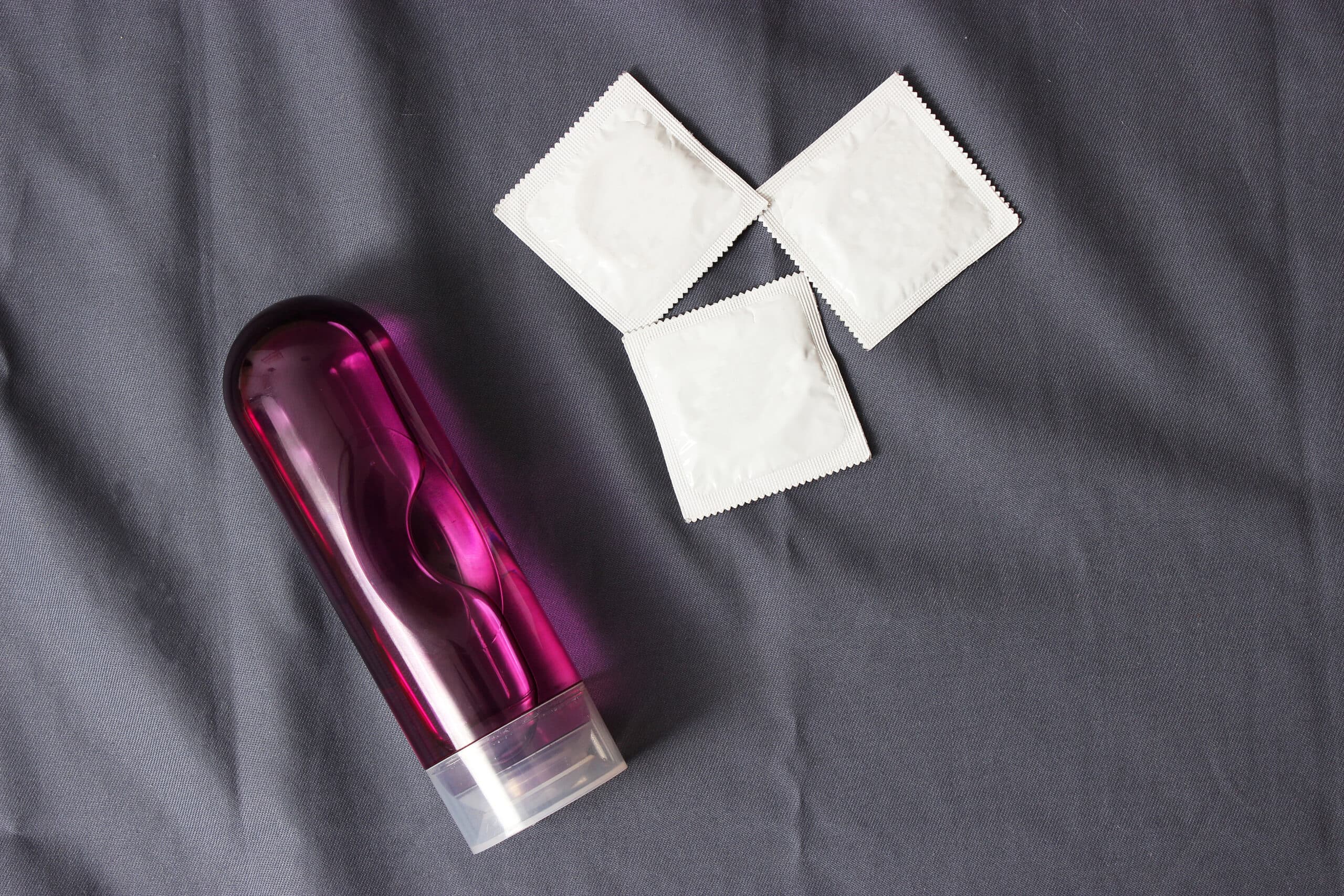Barrier-Based Protection for Queer Sex

Using barrier methods during sex helps prevent or reduce the exchange of body fluids and skin-to-skin contact, which is how most STIs are passed on. But they’re more than STI prevention. They’re also about comfort, care, and pleasure.
There’s no one-size-fits-all when it comes to barrier-based protection. We all have different bodies, relationships, and sexual practices. Think of them as part of your sexual health tool kit, ready to use in the ways that work best for you.
Ground rules
Barrier-based protection methods can include gloves, condoms, dental dams and female condoms. These are single-use only! Having fun with different body parts? Swapping partner? Using multiple toys? Each time you switch it up, you’ll need to grab a new form of barrier based protection.
So if you’re switching from vaginal to anal play, you’ll want to make sure you switch the glove, dam or condom you’re using.
And don’t forget that washing hands, sex toys and body parts before and after sex helps keep everyone feeling good and lowers the risk of infections.
Gloves
Great for fingering, fisting, or anything else that involves hands. Made of nitrile or latex, they’re soft and smooth and help protect delicate areas. Slipping them on can also feel good for the person wearing them. They’re great for getting into character and can really up the kink factor. You can use them to cover any broken skin, sharp nails, skin conditions or fresh tattoos that might increase the risk of spreading an STI, basically anything from syphilis to hepatitis. .
They can also be turned into a dental dam. Click here to learn how.

Condoms
Condoms are versatile. Use them on toys and penises, or turn them into a dental dam. They also work over fingers or your whole hand for fisting, which is handy because they usually come pre-lubed.
Bonus points for condoms with fun textures, colours or flavours.
Always check the expiry date and keep extra lube on hand (more on that a bit later). If it’s being used over a penis, make sure to squeeze the air out of the tip of the condom so it can catch semen. Head here for more tips.

Dental dams
Dental dams are a latex or polyurethane sheet that’s placed over the vulva during oral sex or the anus if rimming, and helps prevent skin-to-skin contact and sharing body fluids.
You can find them at sex stores, buy them online, or with a quick DIY trick, you can make one from a condom or a glove.
When using a dam, it’s handy to put some lube on the side that’ll touch the vulva (not the mouth). You’ll want to make sure the sides are held down tight and that it doesn’t slip or flip over.
Dams are especially useful if:
- You or your partner/s have any bumps on the vulva that might be a sign of herpes or genital warts. Using a dam during oral sex can help prevent them from being passed on.
- You’re planning on rimming (anal-oral sex): Dams help reduce the risk of hepatitis A and bacterial infections like shigella
- You’re having sex during you or your partner’s period: There’s also a higher chance of passing on blood borne viruses (all of the hepatitis’s) while you’re bleeding, and dental dams can help reduce the risk.
- Some people love using dams if they are worried about managing extra fluids or if they’re self-conscious about the smell and taste of particular parts of the body

Got a latex allergy?
A lot of barriers are made from latex, which can be tricky for people with latex allergies. Around 1-2% of us have latex allergies, so while it’s not super common, you might come across someone who can’t use latex at some point.
The good news is that latex free condoms (which can also be made into dams) are easy to find and latex gloves can be switched out for nitrile versions.

Let’s talk lube
Lube makes everything better. It’s used to make surfaces slippery, increasing sensation and reducing friction. Without the use of lube, body parts and barriers are more prone to irritation and tearing, which can increase the chance of STI transmission.
But not all lubes are made equal. They come in different consistencies and some types pair better with certain activities and barriers. You’ll want to pick the right one for what you’re planning to get up to.
Some lubes can cause irritation for some people, but there are options for sensitive skin. Water-based, glycerine-free and hypoallergenic lubes that are free from fragrances are good places to start.
Water-based
- Easy to clean
- Safe for latex and silicone barrier based protections
- Washes away easily, so it’s not ideal for bath or shower sessions
Silicone-based
- Long-lasting, ideal for anal play or any play that happens in or around water
- Safe with latex barriers
- Can cause silicone toys to degrade over time
Oil-based
- These are thicker and longer-lasting, so some people prefer them for more intense activities like fisting
- Not safe with latex (can cause breakage)
- Because oils can stay in the vagina/front hole or anus for longer, they may increase the risk of irritation or infection. If you use oil-based lube, it’s a good idea to wash carefully afterwards.
The take home message is that sex can be both fun and safe at the same time. Get into it and play around – the more you explore the ways that barrier-based protections can enhance pleasure, the better we’ll all be at getting off!
Where to
find support
Looking for someone to talk to?
Find peer groups, community organisations and referral pathways for LGBTIQ+ women and gender diverse people.




